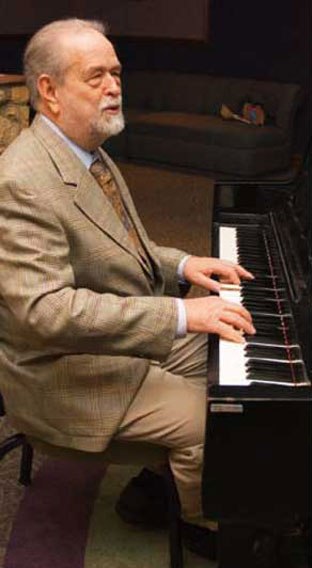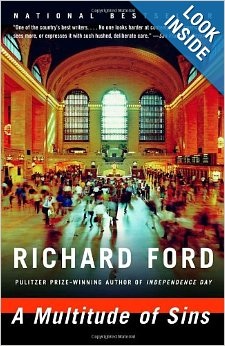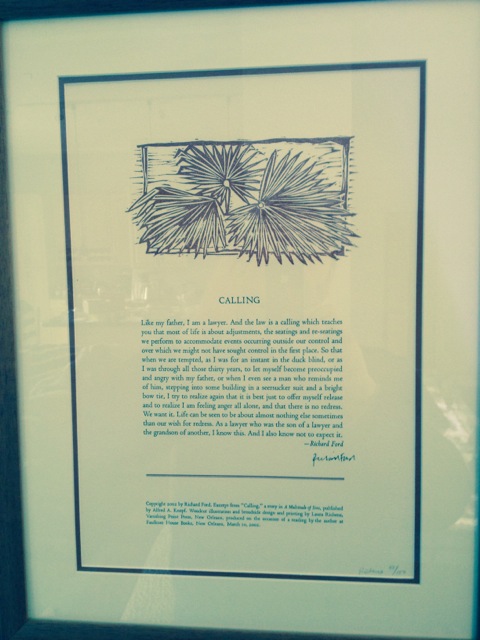Mondays with Mike: Some things get better
February 24, 2014 • 14 Comments • Posted in Beth Finke, guest blog, Mike Knezovich, UncategorizedThis past weekend—a very full one—included a trip to Elmhurst College to root on the North Central College women’s basketball team (the Cardinals) against the evil Elmhurst College Blue Jays. OK, Elmhurst College isn’t evil. And really, we were there more specifically to root on Beth’s great niece, who, as a freshman, gets significant playing time on North Central’s team.
When we entered the gym I was ready with my $12 — $6.00 each for Beth and me, per the information online. The young woman at the ticket table said, “That’ll be $3.00 each.” I left the ticket table feeling like we’d gotten lucky. Then Beth whispered, as we walked away, “I think she thought we were seniors.” As in senior citizens. Well now.
I guess I could’ve been miffed. But just walking into the court area reminded me that I have indeed been around for a good while. Because every time I go to one of Anita’s games, or a friend’s daughter’s soccer game, I am reminded that for the growing segment of the population that is younger than I am, these women’s games are no big deal. Commonplace.
But I still marvel at them. Because women competing athletically—hustling, clawing, grunting, and even fighting (did you see the USA-Canada women’s hockey game?)—wasn’t the norm, wasn’t cool, and for most women wasn’t possible—when I was growing up. That’s all different now. That’s a wonderful thing, and it didn’t happen by accident.
Reasonable people can disagree about the role and the size of government—and that should always be at issue in our democracy. But I gotta say this: Title IX changed things for the better. Period.
By Title IX, I mean Title IX of the Education Amendments Act of 1972 (there is also a Title IX of the 1964 Civil Rights Act). Birch Bayh, U.S. Senator from Indiana, co-authored and introduced the legislation that is summarized here:
No person in the United States shall, on the basis of sex, be excluded from participation in, be denied the benefits of, or be subjected to discrimination under any education program or activity receiving federal financial assistance…
The law was renamed in 2002. It’s formal name is now the Patsy Mink Equal Opportunity in Education Act—Mink was the Congresswoman from Hawaii who co-authored the bill, and who introduced it to the House of Representatives.
The law was not focused on athletics—it was intended to ensure equal opportunity in employment and enrollment and educational opportunities at colleges and universities that received support from the federal government. Here’s what Senator Bayh had to say about it back then:
“We are all familiar with the stereotype of women as pretty things who go to college to find a husband, go on to graduate school because they want a more interesting husband, and finally marry, have children, and never work again. The desire of many schools not to waste a ‘man’s place’ on a woman stems from such stereotyped notions. But the facts absolutely contradict these myths about the ‘weaker sex’ and it is time to change our operating assumptions.”
Title IX has made a huge difference overall, but its impact has been the most visible in athletics. When I was in high school lo these many decades ago, girls playing sports was broadly considered weird (at best, and characterizations of female athletes were often much less charitable than “weird”).
Not so anymore. Saturday I sat in the bleachers with Beth, Anita’s family, Beth’s sister Cheryl, their mother Flo, and we cheered some really good players as they went at it hard in a very entertaining game. I heard the coaches get on the players, mothers and fathers yelling at the refs, and it was all…normal. I was pleased that it seemed so commonplace. But I will never cease to marvel at it, and I feel privileged to have witnessed this change in my lifetime.





